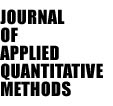 |
|
|||
Modeling the Effects of Early Childhood Intervention Variables on Parent and Family Well-Being
Carl J. DUNST
Deborah W. HAMBY
Jeffri BROOKFIELD
Keywords
early childhood intervention, program evaluation, structural equation modeling, effects decomposition
Abstract
Structural equation modeling was used to evaluate the effects of family, child, and both early childhood intervention process and structural variables on parent and family well-being in a sample of 250 parents involved in birth to age three early childhood intervention programs. Family SES and income had direct positive effects, family-centered early intervention practices had direct and indirect positive effects, perceived program control appraisals had direct and indirect positive effects, and early intervention program service intensity had direct negative effects on either or both self-efficacy beliefs and parent and family well-being. Findings are discussed in terms of the benefits and limitations of different features of early childhood intervention and the use of SEM for program evaluation.
(top)

